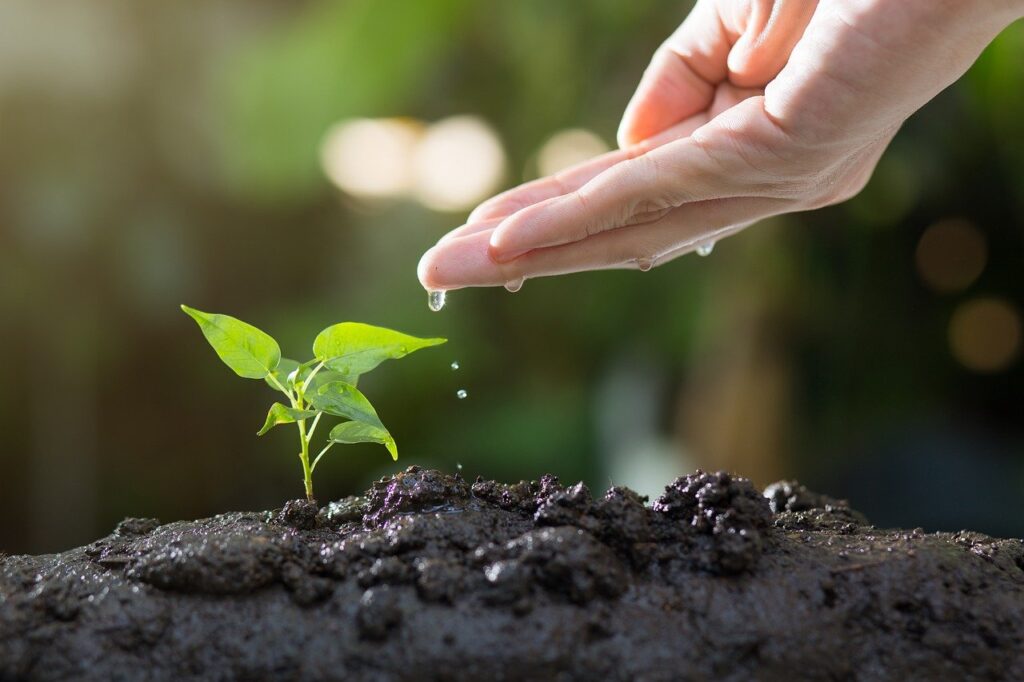The Importance of Gardening: 10 Key Benefits for Health, Environment, and Well-being

Gardening is more than just a hobby; it’s a beneficial activity that enhances our physical health, mental well-being, and the environment.
Whether you have a sprawling backyard or a small urban balcony, it’s offers numerous advantages.
Let’s delve into the ten significant benefits of garden and why it’s an essential practice for everyone.
Physical Health Benefits
Gardening is a great form of low-impact exercise. Activities like digging, planting, weeding, and watering can improve cardiovascular health, increase muscle strength, and enhance flexibility.
Regular doing can help reduce the risk of heart disease, obesity, and other chronic conditions.
Mental Health and Stress Relief
it is a great way to connect with nature and lower stress, anxiety and depression. The act of nurturing plants and spending time outdoors can elevate mood, promote relaxation, and provide a sense of accomplishment and purpose.
Improved Nutrition
Growing your own vegetables, fruits, and herbs ensures you have access to fresh, organic produce. This not only enhances your diet but also encourages healthier eating habits.
Homegrown produce is often richer in nutrients compared to store-bought items, which can lose nutritional value over time.
Environmental Benefits
it helps the environment in multiple ways. Plants absorb carbon dioxide and release oxygen, improving air quality. Gardens, especially those with native plants, can support local wildlife, including bees, butterflies, and birds, promoting biodiversity.
Community Building
Gardening can be a communal activity that brings people together. Community gardens provide space for neighbors to connect, share knowledge, and work collectively towards a common goal. This fosters a sense of community and enhances social bonds.
Educational Opportunities
it is an excellent way to learn about nature, biology, and ecology. It offers hands-on experience in understanding plant life cycles, soil health, and sustainable practices.
This is particularly beneficial for children, providing them with practical knowledge and fostering a love for nature.
Economic Savings
Growing your own food can significantly reduce grocery bills. By producing your own vegetables, fruits, and herbs, you can save money and enjoy the convenience of having fresh produce at your fingertips.
- Work From Home Job Hotel Partner Onboarding Executive
- Work From Home Job: US Healthcare Nurse Recruiter 2025
- Best Hospital Data Entry Work From Home Jobs 2025
- Tech Tips and Tricks to Help You Get Things Done Faster!
- Top 10 Global Technology News Today Updates: AI, Innovations
it can also increase property value by enhancing curb appeal.
Therapeutic Effects
Horticultural therapy is a practice that uses it to improve mental and physical health.
It is used in various therapeutic settings, including hospitals, rehabilitation centers, and senior living communities.
Gardening activities can aid in rehabilitation, improve motor skills, and boost emotional well-being.
Creativity and Innovation
it’s allows for creativity in designing landscapes, choosing plant varieties, and solving gardening challenges. It stimulates the mind, encouraging innovative thinking and problem-solving skills. This creative outlet can be both fulfilling and intellectually stimulating.
Sustainability and Self-Sufficiency
it promotes sustainable living by encouraging practices like composting, water conservation, and organic growing methods.
It also fosters self-sufficiency, reducing reliance on commercial food sources and contributing to a more sustainable lifestyle.
Conclusion – 10 Importance of Gardening
Gardening is a multifaceted activity with profound benefits for individuals and communities alike. It nurtures physical health, mental well-being, and environmental sustainability.
By embracing gardening, we can enjoy fresh, nutritious produce, foster community connections, and contribute positively to our planet.
FAQs
- What are the basic tools needed to start gardening?
To start gardening, you’ll need essential tools like a trowel, pruners, a watering can, a hoe, a rake, and gardening gloves. As you advance, you might find additional tools helpful. - How can I start a garden in a small space?
You can start a garden in a small space by using containers, vertical gardening techniques, and choosing compact or dwarf plant varieties. Herbs, salad greens, and cherry tomatoes are great options for limited spaces. - What are the easiest vegetables to grow for beginners?
Some of the easiest vegetables to grow for beginners include radishes, lettuce, carrots, green beans, and tomatoes. These plants require minimal care and have a high success rate. - How do I maintain a garden during extreme weather conditions?
During extreme weather, protect your garden by mulching to retain moisture, using shade cloths or frost covers, and watering appropriately. In cold climates, consider using greenhouses or cold frames. - What are the benefits of organic gardening?
Organic gardening avoids synthetic chemicals, promoting healthier soil and plants. It reduces environmental impact, encourages biodiversity, and produces healthier, chemical-free food. Organic methods also enhance soil fertility and structure.
Embrace the joy of gardening and discover the myriad benefits it offers. Happy gardening! 10 Importance of Gardening.